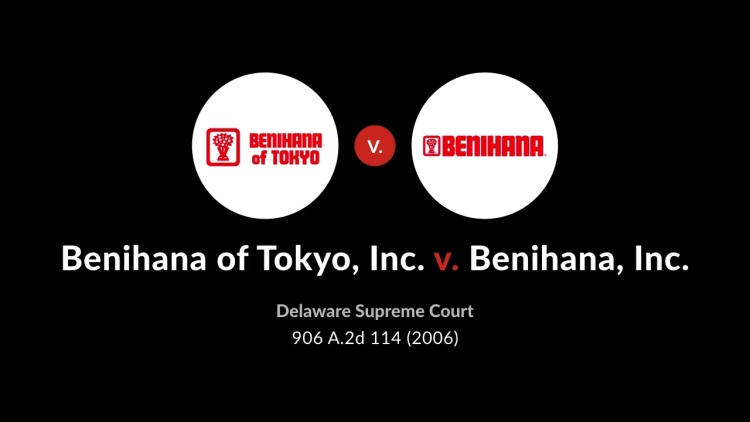Benihana of Tokyo, Inc. v. Benihana, Inc.
Delaware Supreme Court
906 A.2d 114 (2006)

- Written by Sean Carroll, JD
Facts
Benihana of Tokyo, Inc. (BOT) (plaintiff) and its subsidiary Benihana operated restaurants across the world. Many of Benihana’s restaurants needed renovation, but the company did not have the necessary funds. Benihana hired Fred Joseph to analyze the company’s financial needs and determine a plan of attack. Joseph recommended that Benihana issue convertible preferred stock, which would give the company the funds necessary for renovation. Subsequently, John Abdo, a Benihana board member, informed Joseph that BFC Financial Corporation (BFC) was interested in buying the convertible stock. Abdo was also a director of BFC, and he negotiated with Joseph for the sale of the stock on behalf of BFC. At a subsequent Benihana board meeting, Abdo made a presentation on behalf of BFC regarding its proposed purchase of the stock. He then left the meeting. The Benihana board of directors (defendants) knew that Abdo was a director of BFC, and Joseph informed the Benihana board that Abdo had approached him about the sale on behalf of BFC. At the same meeting, the Benihana board voted in favor of the sale to BFC. Two weeks later, BOT’s attorney sent a letter to the Benihana board asking it to abandon the sale on account of concerns of conflicts of interests, the dilutive effect on voting of the stock issuance, and the sale’s “questionable legality.” The board nonetheless again approved the sale. BOT then brought suit against the Benihana board of directors, alleging breach of its fiduciary duties.
Rule of Law
Issue
Holding and Reasoning (Berger, J.)
What to do next…
Here's why 907,000 law students have relied on our case briefs:
- Written by law professors and practitioners, not other law students. 47,100 briefs, keyed to 996 casebooks. Top-notch customer support.
- The right amount of information, includes the facts, issues, rule of law, holding and reasoning, and any concurrences and dissents.
- Access in your classes, works on your mobile and tablet. Massive library of related video lessons and high quality multiple-choice questions.
- Easy to use, uniform format for every case brief. Written in plain English, not in legalese. Our briefs summarize and simplify; they don’t just repeat the court’s language.





